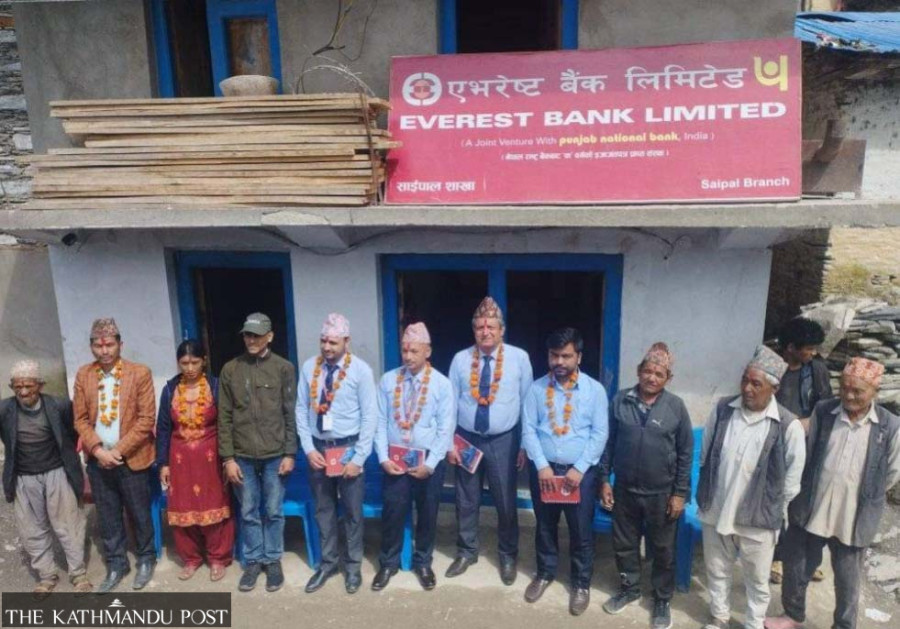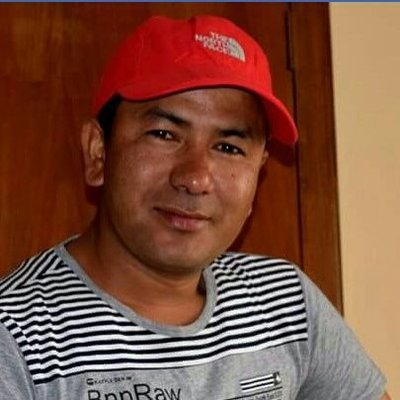Money
Saipal gets its first bank branch. But locals are not happy
Everest Bank’s branch opens in Dhuli, but for the elderly and differently-abled people, it still takes days to reach the bank for the social security allowance.
Basant Pratap Singh
Dhuli, the last village in the Bajhang district on the Nepal-Tibet border in the Saipal rural municipality of Bajhang, finally has a bank. But people are not very happy.
Everest Bank has established a branch in Dhuli village, which is the gateway to the rural municipality.
There are 107 banking and financial institutions in Nepal. As of mid-August, 20 commercial banks, 17 development banks, 17 finance companies, 52 microfinance institutions, and one infrastructure development bank are in operation. The banking branches number 11,541.
Only Sapial municipality did not have a bank branch out of the 753 local governing units—metropolitan cities, sub-metropolitan cities, municipalities and rural municipalities.
Despite the establishment of the first branch, locals are not happy.
“It takes a day-long walk for a young adult to reach Dhuli. For older people, it takes two days,” said Tikaram Gurung, a resident of Dhuli. “Even if the branch has been established, it’s not going to ease the problems of the elderly, who can now withdraw their social security allowances from the branch.”
The opening of the first branch in Sapial will not address the grievances of the elderly and differently-abled people as they still need to be carried on the back to claim the social security fund, Gurung added. Instead, setting up the branch in Kaada, the centre of most villages, would have made life easier for the people.
Manbir Bohara, the ward chairman, said that after the Everest Bank refused to open a bank in the municipality's centre, citing insecurity and a poor road, it had to be established in Dhuli.
A bank in the municipality, nonetheless, will be a big relief for many villagers. “Now that there is a bank branch in the municipality, it has become easier for individuals to do financial transactions,” said Bohara.
It would facilitate the residents of wards 1 and 2, but according to locals, people in wards 3, 4, and 5 in the northern part of the district will still face problems.
They said the elderly and others in the northern part of the district still have to walk for days to get the social security allowance.
Bohara, however, said that the branch had only been opened and they were studying the residents’ issues. “We are discussing how to facilitate the distribution of social security allowance in the villages of Kaada, Nyuna, and Balodi.”
After the bank came into operation, locals and associations of Dhuli started to open accounts.
“We are happy to open the branch and provide services," said Ramkumar Thapa, head of the Saipal branch of the bank. "Locals are also happy to see the bank, eight years after the country was federated."
Thapa said that during the bank's initial operation, he received good support and feedback from the locals. The rural municipality has installed a 5-kilowatt solar plant worth about Rs1 million to power the bank. He, however, said there is a problem with the Internet, which fluctuates from time to time and hampers work.
Seven years ago, the central bank asked Everest Bank to serve the Saipal rural municipality.
The bank had been reluctant to establish the branch, citing poor infrastructure such as roads and communication, and security.
The local people’s representatives visited Kathmandu many times, requesting the government to establish the branch.
They have been criticising the government, saying that the people from the far-flung Saipal could not feel the presence of the local governing council in the absence of a bank or its branch.
In March, a team led by Nepal Rastra Bank director Satyendra Timilsina, including Everest Bank deputy general manager Ashutosh Sharma and Everest Bank’s Bajhang branch chief Kumar Thing, reached Saipal for a field study.
Based on the team’s recommendations, the government introduced a policy to establish the bank branch within this fiscal year.
Since there were no banks or branches in the municipality, the Saipal municipal office has been renting a house in Chainpur, the district headquarters, to conduct financial transactions.
Locals had to walk for two to four days to get a small recommendation to the district headquarters.
When coming to the headquarters to negotiate and withdraw funds, the officials of the consumer committee used to claim the expenses of food, transportation and accommodation from the project budget, putting a dent on the funds set aside for specified works.
For most consumer committees, signing a project agreement takes 6 to 12 days including the time taken to open an account and deposit the money.
Years ago, locals protested for a long time when Kaada was annexed to the Talkot rural municipality, which would take three days to reach the municipality.
The Everest Bank said there is a formal programme to open the first branch by Nepal Rastra Bank Governor Maha Prasad Adhikari. After its formal opening, discussions would be held on making the services easily available to the citizens in other remote areas, according to Everest Bank officials.




 9.88°C Kathmandu
9.88°C Kathmandu














